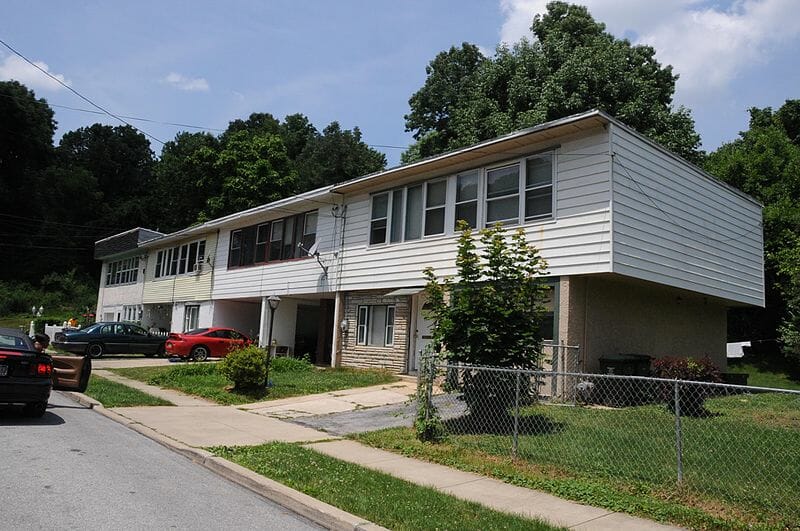Minimum-Wage Earners Can’t Afford 2-Bedroom Rentals in U.S.
A study by the National Low Income Housing Coalition finds that the average worker would have to put in 122 hours per week to afford a two-bedroom apartment at the national fair market rent. Wikimedia Commons
Wikimedia Commons
The same day the Federal Reserve raised interest rates—signaling confidence in a growing economy—and on the heels of a seemingly positive May jobs report, a new study by the National Low Income Housing Coalition (NLIHC) suggests that the economy isn’t as healthy as some might believe. That’s especially true for Americans working minimum-wage jobs who rent a home.
There is nowhere in the United States where a person working a full-time minimum-wage job can afford a two-bedroom apartment, according to Out of Reach, an annual report on housing affordability and the gap between wages and rent.
Using the federal minimum wage of $7.25 an hour and national and statewide data on rental prices, researchers found that the average worker would have to put in 122 hours per week to afford a two-bedroom apartment at the national fair market rent, an estimate the government updates every year, usually based on the 40th percentile of the gross rent of a given area.
This is the case even in states with low rental prices. The Washington Post notes that in Arkansas, which has the least expensive housing market in the country, “One would need to earn $13.84 an hour—about $29,000 a year—to afford a two-bedroom apartment there. The minimum wage in Arkansas is $8.50 an hour.”
While the problem affects the poorest Americans most, even Americans earning above the federal minimum wage struggle to pay rent, including those earning the $15 hourly wage pushed by many Democrats.
In Hawaii, which has the nation’s most expensive rental market, prospective renters have to make $36.13 an hour to afford a two-bedroom apartment on their own. In major metropolitan areas, it gets worse. In San Francisco, for example, a renter would have to make $60.02.
As CityLab’s analysis of the report notes, “NLIHC estimates that the average renter’s hourly wage in the United States is $16.88. The average renter in each county makes enough to afford a two-bedroom in only 11 percent of U.S. counties, and a one-bedroom, in only 43 percent.”
But opting for a one-bedroom apartment may not help. There are only 22 counties in the entire nation where minimum-wage workers can afford even one-bedroom rentals on their salary alone.
Housing advocates aren’t optimistic that the situation will improve anytime soon. While demand for housing rose during the years of the Great Recession, the rental units built were often high-end, which the NLIHC report attributes to high development costs:
According to the Joint Center for Housing Studies (2017), the number of homes renting for $2,000 or more per month increased by 97% between 2005 and 2015 with the new development of high-end apartments and rising rents of existing apartments. During the same time, the number of homes renting for less than $800 declined by 2%. While the rental market added more than 6.7 million housing units during this period, the number of units renting for less than $800 declined by more than 260,000.
The authors also express concern that the Trump administration’s decision to cut housing subsidies will exacerbate the problem.
Your support matters…Independent journalism is under threat and overshadowed by heavily funded mainstream media.
You can help level the playing field. Become a member.
Your tax-deductible contribution keeps us digging beneath the headlines to give you thought-provoking, investigative reporting and analysis that unearths what's really happening- without compromise.
Give today to support our courageous, independent journalists.






You need to be a supporter to comment.
There are currently no responses to this article.
Be the first to respond.